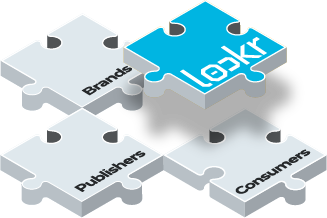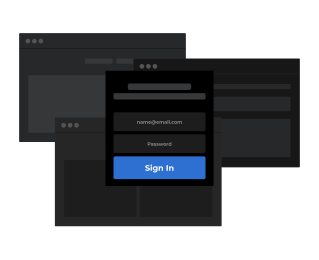

Thank you!
Just one more thing before you go...

An Identity Solution Built for the Consumer

The proverbial clock on the official depreciation of the third-party cookie (given Google’s 70% share of the global browser market) is less than 18 months away and the sanctity of the open and free internet is at risk.
Subsidized access to digital content is contingent on the ability to target, frequency cap, and measure marketing efforts – all of which will become increasingly difficult without a persistent identifier.
As clearly outlined in Ronan Shield’s recent piece in Digiday, proposed industry solutions to this looming change have been anything but successful in their roll out. With testing stalled in Europe, major publishers practicing a wait-and-see approach, and publicly-listed market leaders hesitant to be caught “holding the bag” in accordance with global regulations; there are more questions than answers at this time.
The common thread underlying most of the challenges is a lack of innovation in the proposed solutions, all of which attempt to replace the existing model with as little friction as possible. But, the impending death of the cookie and the device ID present a unique opportunity to redefine the unspoken value-exchange of the internet and incorporate consumer choice and consent into the equation. Advertising industry solutions, such as UID 2.0, PreBid OpenPass, LiveRamp’s IDL, etc., all lack the involvement and informed consent of the consumer.
If individuals were empowered with the mechanics to control personal identity, consent, and data, a majority of the hurdles facing the market today would be resolved.
- Consumers would be able to simply grant and withdraw consent on an individual publisher basis.
- The consent mechanism would clearly act as a data processor on behalf of the consumer in conjunction with their preferences with regards to a specific enterprise.
Furthermore, publisher concerns would be addressed to ensure holistic participation and a consistent world-wide experience for consumers:
- Currently there is hesitancy around the forced authentication and lack of transparency with many solutions. Allison Murphy, SVP of Products at The New York Times, reportedly told Digiday that UID 2.0 was “not a priority” – adding “we don’t look favorably on solutions that in the end are still about a lot of data transfer about individuals’ online behavior in ways they don’t understand.” A consumer-centric solution will go a long way to ensure alignment with true consumer concerns, which frankly tend more towards a lack of transparency and control than on tracking and data-sharing.
- Similarly, many publishers have expressed concern around data sharing models. Stephanie Layser, Prebid.org board member, and VP of Data, Identity, and Ad Tech Platforms at News Corp, has publicly stated, “I think it’s also a question of whether publishers want to take their most valuable asset and do you want to share it to help the open internet?” When left to the consumer to validate who has access to their data, this concern becomes moot.
lockr is taking a unique approach to the problem at hand – focusing specifically on a solution built for the consumer that is compatible with existing industry revenue models. The lockr solution is not intended to compete with B2B industry initiatives; rather, lockr is a complementary tool in the arsenal. With lockr’s model, the consumer is granting access to their own personal data directly to the publisher or brand – there is no co-op formed nor any question of transparency, and the enterprise can choose if this data (once facilitated by lockr) should be pushed into other identity solutions such as UID 2.0, ATS, PreBid, etc.
lockrMail is the only player in the space building a consumer solution that will collaborate with publishers to facilitate the continued support of the open and free internet.

Machine-Generated Email Cost Calculator
Unlock additional revenue by integrating with Identity lockr.
Select your industry vertical.
How many registered users or newsletter subscribers do you have?
Average monthly emails sent to each subscriber per month?
What is your average email open rate?Optional
What is your average email click rate?Optional
Has lockr previously analyzed the machine-generated emails in your first-party data?
What was the percentage?
Enter your RPM (page revenue per 1,000 sessions).
What is your average monthly subscriber growth rate?
What is your anonymous web visitors monthly pageview traffic?
What is your authenticated monthly pageview traffic?
Projected Incremental Revenue
Projected Annual MGE Overhead
| MGE Fees | $0 |
| MGE Lost Email Revenue | $0 |
| MGE Advertising Leakage | $0 |
| One month of Email Jail | $0 |
| Incremental Revenue | $0.0M |
Enter your email to receive the full report.
Are you sure you want to leave?
Changes you made will not be saved.







